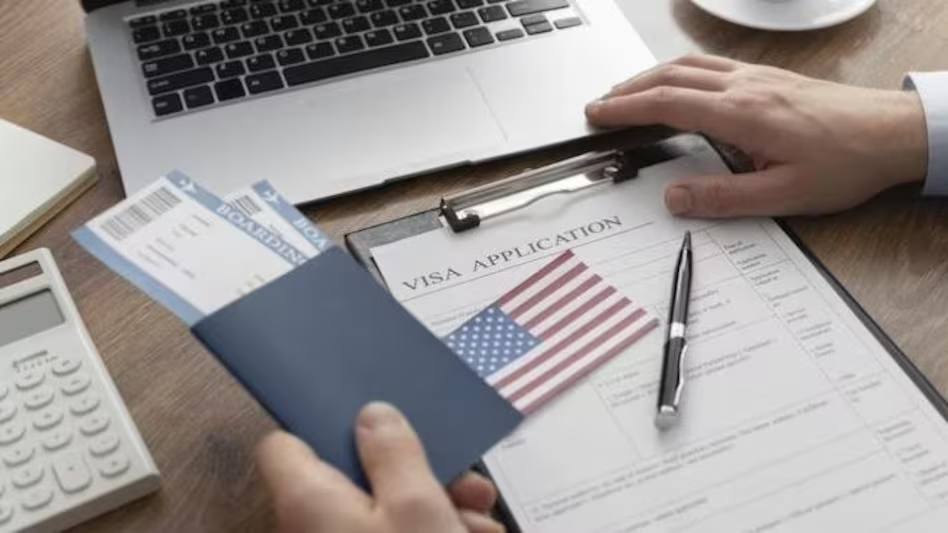The United States has brought about major revisions to its visa policies and renewal processes in 2025 that affect Indian applicants in different categories of visas. These changes intend to simplify procedures, improve security, and solve administrative backlogs while implementing tougher requirements. A detailed analysis of the new policies follows below under appropriate subheadings.
Introduction to the New Visa Policies
The year 2025 has brought revolutionary changes to U.S. visa policies, especially impacting Indian nationals seeking tourist, work, student, and immigrant visas. The changes involve tighter documentation requirements, improved vetting processes, and changes in interview regulations. Although the changes hold the promise of efficiency and security, they also bring in complexities that necessitate applicants being more careful in preparation.
Key Changes to Visa Application Processes
A number of key changes have been introduced for visa applications from April 2025:
-
Forced Barcode Matching: Applicants are required to verify that the barcode on their DS-160 form is the same as the barcode associated with their visa appointment. Any mismatch leads to automatic disqualification for the interview and necessitates the restart of the application process.
-
72-Hour Document Upload Deadline: Supporting documents like financial records need to be uploaded electronically at least 72 hours prior to the interview. Not doing so results in automatic cancellation of the appointment.
-
Social Media and Travel History Checks: Two years of travel history and five years of social media activity need to be provided by applicants. These checks are designed to detect previous behaviors or affiliations that can be security risks.
-
Stronger Home Country Ties: Evidence of strong home country ties to India has been made more rigorous, particularly for nonimmigrant visas such as B1/B2 (business/tourist) and H-1B (work).
These updates align with an increased emphasis on individual responsibility and security, where applicants must be accurate and detailed in their applications.
H-1B Visa Renewal Process Updates
The process of renewing the H-1B visa has been dramatically revised, bringing relief to Indian professionals while instituting stronger standards:
-
Domestic Renewal Option: Indians are no longer required to travel abroad to renew their H-1B visas, and can now do so within the U.S. The modification was made after a successful pilot program in 2024.
-
Streamlined Renewal Process: Those renewing their H-1B visas domestically have fewer logistical issues and quicker processing than through the usual approach that involves consulates in India.
Nevertheless, more stringent eligibility standards and higher wage thresholds have been added for H-1B applicants, focusing on adherence to employment verification procedures and specialty occupation demands.
Interview Waiver (Dropbox) Eligibility Changes
The U.S. Department of State has made changes to interview waiver (Dropbox) guidelines:
-
Shorter Eligibility Window: Only the renewal of an existing visa of the same class that has lapsed within the past 12 months is eligible for Dropbox processing. Earlier, this period had been up to 48 months.
-
Increased Urgency for In-Person Interviews: The narrowing eligibility period has spawned a surge in demand for interview appointments at U.S. consulates in India, resulting in extended wait times for visa renewals.
This reversal will largely affect Indian travelers depending on Dropbox renewals, resulting in delays and possible disruptions for professionals requiring expedited visa renewals.
Implications for Indian Applicants
Indian citizens are confronted with a number of issues under the new rules:
-
Lengthier Processing Times: Retrogressions in employment-based immigrant visa preferences (e.g., EB-5) have caused wait times to increase appreciably. Family-sponsored preference categories are likewise facing delays caused by backlogs.
-
Increased Rejection Rates: Tighter screening procedures are projected to lead to a 20–25% boost in rejections for nonimmigrant visas such as visitor (B1/B2) and work visas (H-1B).
-
Comprehensive Documentation Requirements: Candidates need to carefully prepare lengthy supporting documents like financial statements, itinerary records, letters of employment verification, and social media accounts.
In spite of all these challenges, the new regulations are designed to make a more secure and efficient system as well as favoring skilled professionals in high-value fields like STEM.
Hints to Navigate New Visa Policies
To effectively cope with these changes, Indian candidates must follow the following strategies:
-
Start Early: Start making preparations long before your existing visa is about to expire to prevent delays.
-
Double-Check Documentation: Double-check that all forms have been correctly filled in and supporting documents adhere to revised standards.
-
Monitor Application Status: Check your application status regularly through official websites.
-
Consult Professionals: Obtain professional advice for intricate cases or work-related petitions.
-
Plan Travel Around Processing Times: Incorporate time cushions in travel plans to allow for potential delays.
Conclusion
The 2025 U.S. visa rules are a defining turning point for immigration processes of Indian applicants. While the revised procedures guarantee greater convenience and safety, they bring forth challenges which call for foresight and precise preparation. Indian citizens can manage this changing process well by gaining familiarity with the revised guidelines and using proactive strategies. Whether renewing an H-1B work permit at home or seeking a tourist visa, the best way to navigate the application process during these reforms is by being up-to-date.
Source: YouTube, Business Standard, Outlook Money
